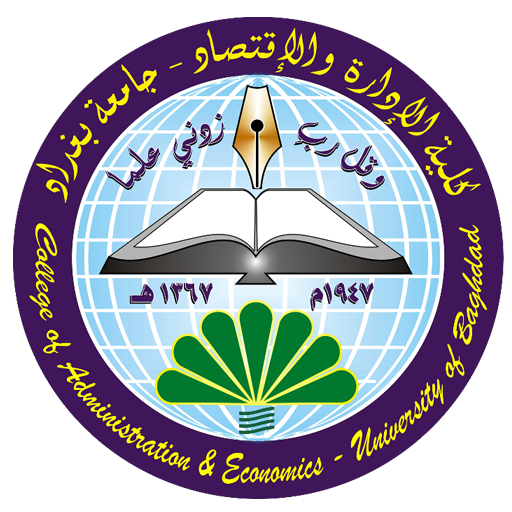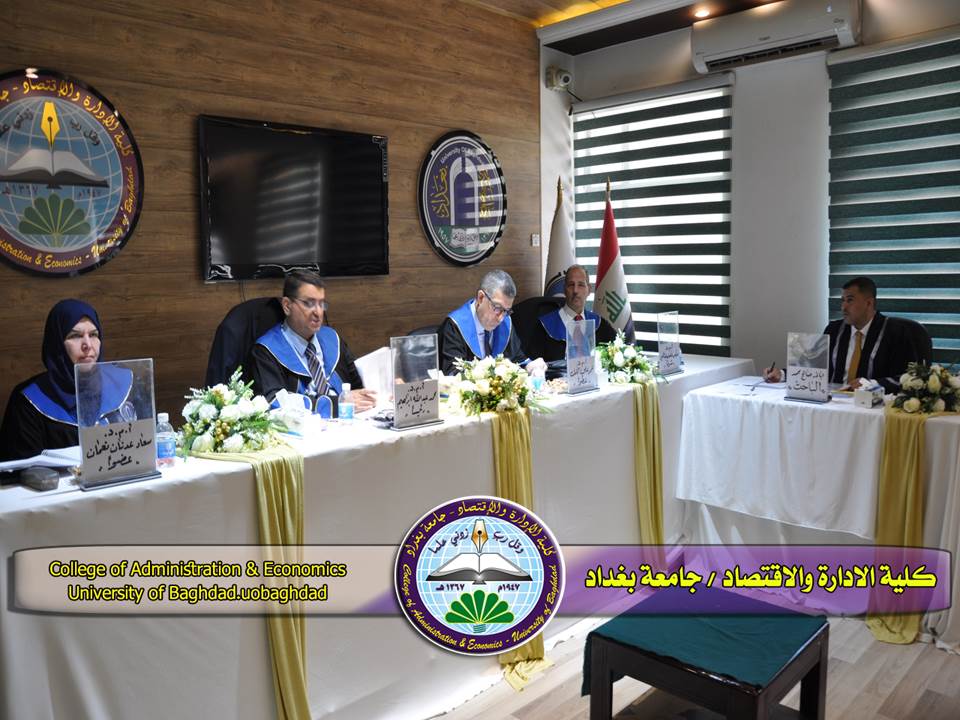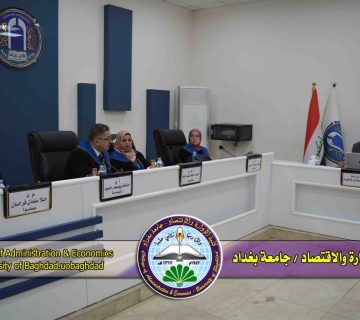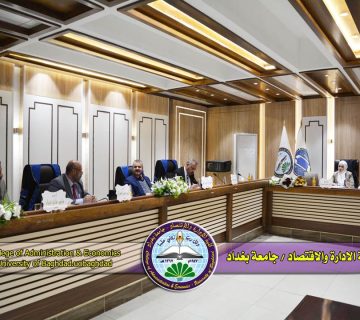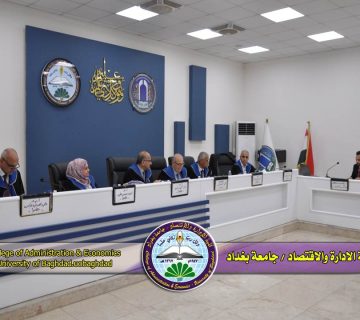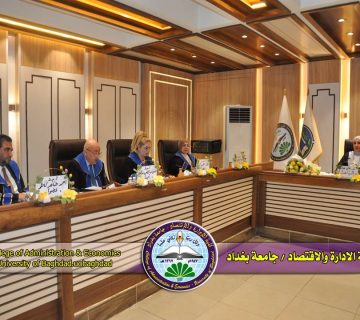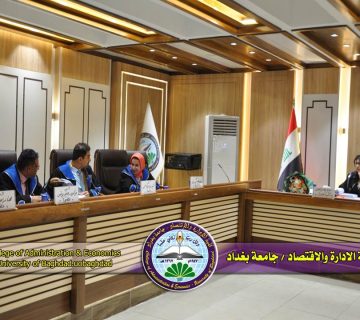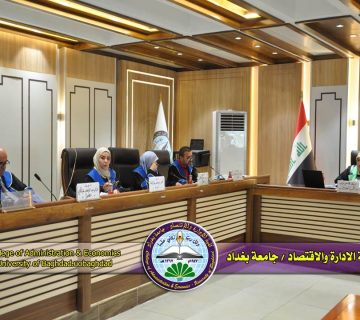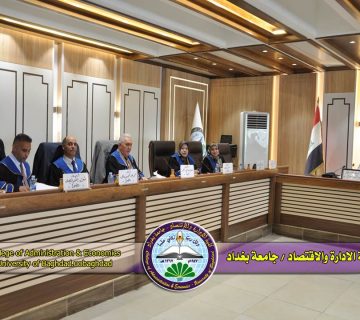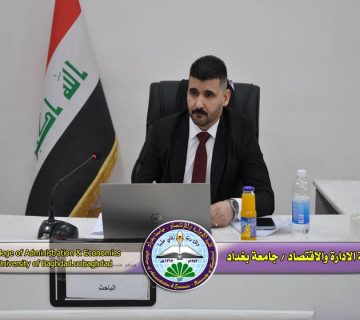The College of Administration and Economics at the University of Baghdad discussed , a master’s thesis in field of Accounting by the student (Abather Saleh Mohammed ) and tagged with ( The Impact of Adopting Standard (IFRS 6) in the Quality of Financial Reporting for Iraqi Oil Companies) , Under supervision of (Assist.Prof Dr. Abbas Fadhil Abdulameer )
The current research aims to attempt to adopt International Financial Reporting Standard No. (6) for accounting for mineral resources exploration and evaluation expenditures in Iraqi oil extraction companies, and to identify the requirements for its implementation in line with the Iraqi state’s approach to applying international financial reporting standards, and to measure its impact on improving the quality of financial reporting using the model (Kothari et al., 2005) in Basra Oil Company, to reduce the phenomenon of diversity of accounting policies in oil extraction companies, as these expenditures are characterized by very high capital risks, due to the factor of uncertainty regarding their achievement of future economic benefits. It has been observed that Iraqi oil extraction companies do not process exploration and evaluation expenditures in an appropriate and fair manner, as they follow either a conservative accounting policy that fully capitalizes them, or an unconservative (aggressive) accounting policy that completely writes them off, which has led to poor financial reporting quality for the unit. Therefore, the researcher sought to address this problem by applying International Financial Reporting Standard No. (6) to the financial statements of Basra Oil Company, considering it one of the basic components for achieving quality financial reporting in accordance with international financial reporting standards. The researcher reached several conclusions, the most prominent of which are the following:
1. The feasibility of implementing IFRS 6 in Iraqi oil extraction companies, consistent with the unified accounting system, due to its flexibility in accommodating newly created accounting figures and in line with the nature of the accounts required by the standard
2. IFRS 6 has a positive impact on improving the quality of financial reporting for the Basra Oil Company. The quantitative measurement results showed an overall 80% improvement in the quality of financial reporting after implementing the standard, and a reduction in the value of discretionary accruals compared to the company’s original data, confirming its clear positive impact
3. Initially capitalizing exploration and evaluation expenditures into exploration and evaluation assets, and then into oil and natural gas holdings, in accordance with IFRS 6, contributed to reducing the value of discretionary accruals. The study also demonstrated an inverse relationship between asset capitalization and improving the quality of financial reporting, reflecting the importance of proper recognition of these assets. In light of these findings, the researcher presented a number of recommendations, most notably:
1. The necessity of adopting IFRS 6 and adopting the successful efforts method in Iraqi oil extraction companies, given its significant impact on improving the quality of company financial reporting.
2. Limiting accounting practices that violate accounting principles and international financial reporting standards, and emphasizing the importance of reviewing and updating the applicable unified accounting system to comply with the requirements of these standards.

